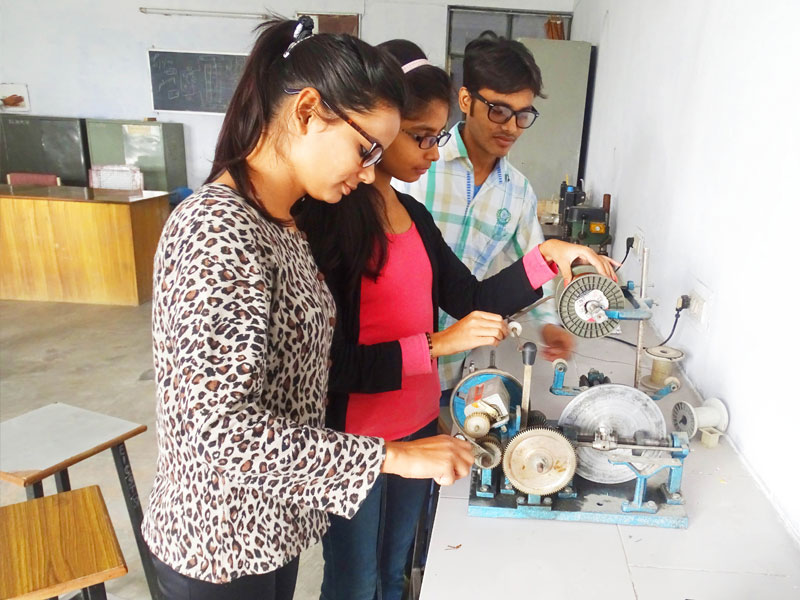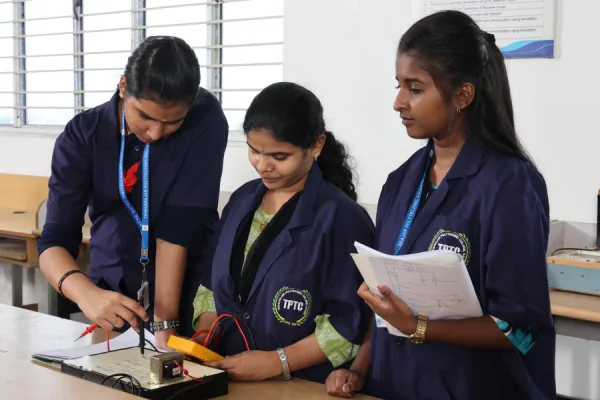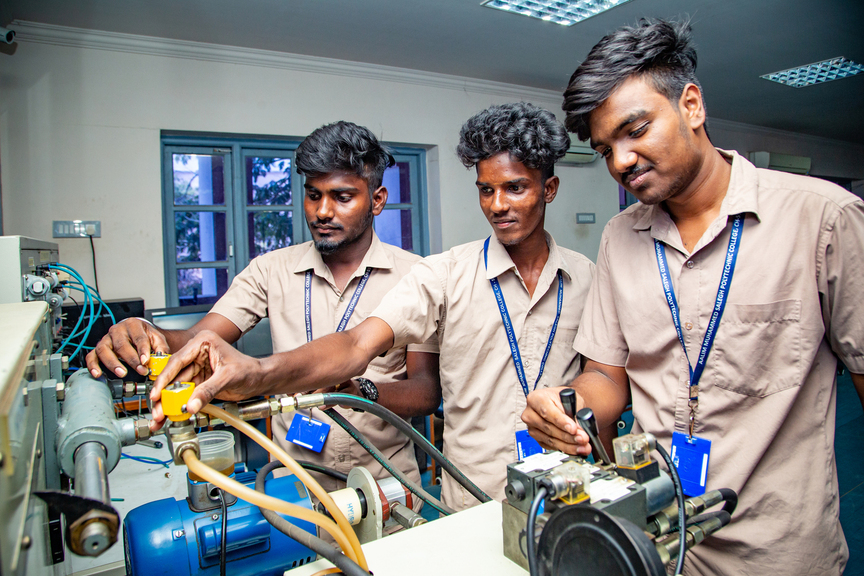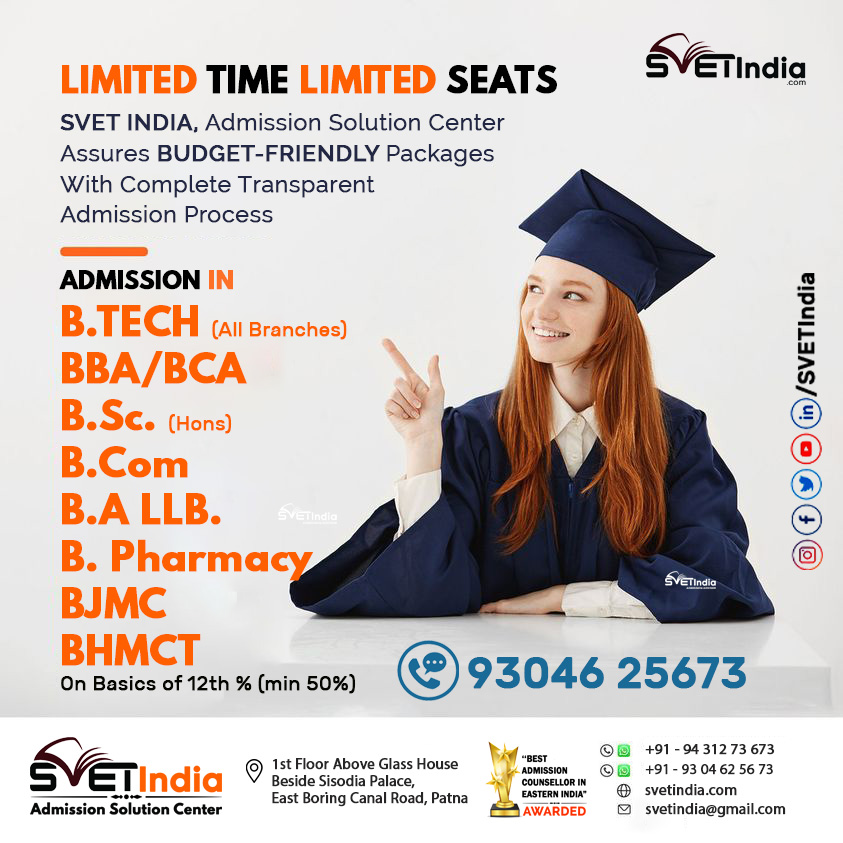About Polytechnic
Polytechnics typically offer diploma, certificate, and degree programs, depending on the country and the specific institution. The curriculum often includes a blend of classroom instruction, laboratory work, and internships or co-operative education experiences, allowing students to gain practical experience in their chosen field.
One of the key features of polytechnic education is its emphasis on applied learning and real-world problem-solving. Students are encouraged to work on projects, collaborate with industry partners, and develop practical skills that are relevant to their chosen profession. Polytechnic education is particularly valued in industries such as engineering, technology, manufacturing, and applied sciences, where there is a high demand for skilled professionals with hands-on experience.
Overall, polytechnic institutes play a crucial role in providing technical education and training that is aligned with the needs of the industry, helping to bridge the gap between academia and the workforce.
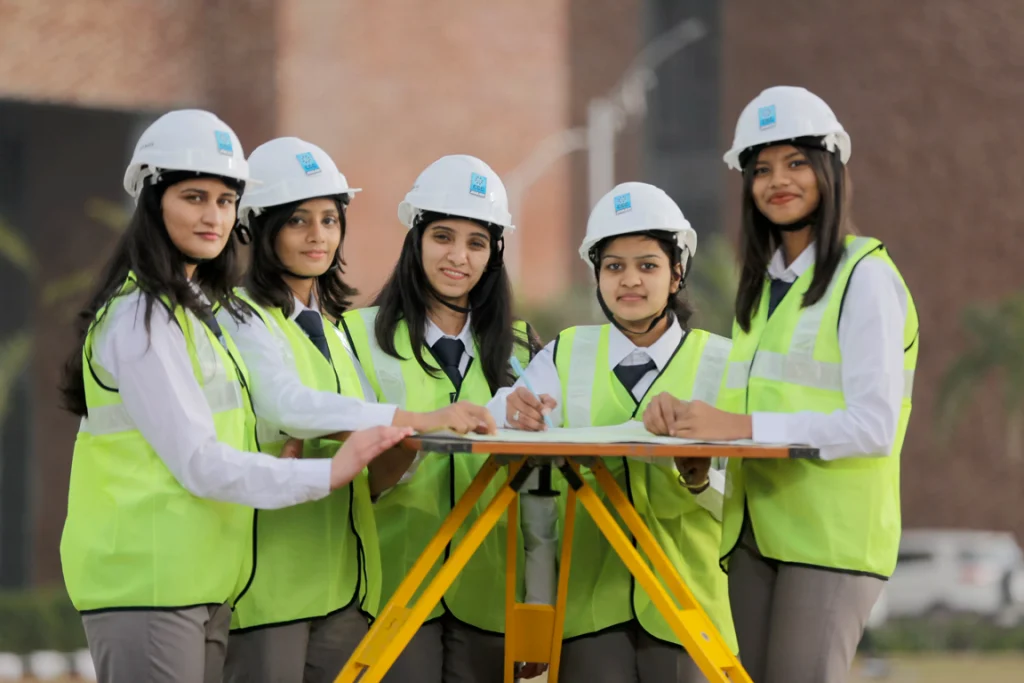
ELIGIBILITY: Candidates must have passed class 10 or equivalent examination with a minimum of 35% marks. There is no minimum or maximum age prescribed for the admission process.
Compulsory Subjects : Generally Mathematics, Science & English are considered to be compulsory polytechnic subjects to apply for diploma courses.
Difference between Polytechnic and B.Tech
The basic difference between polytechnic and B.Tech is that polytechnic is a diploma course whereas B.Tech is a degree course. Polytechnic courses are generally for three years, whereas B.Tech is a four-year undergraduate program. In terms of fee structure, B.Tech is a high-fee course as compared to polytechnic.
TOP BRANCHES / TRADES OFFERED IN POLYTECHNIC
Computer Science Engineering
Mechanical Engineering
Electrical Engineering
Electronics & Communication Engineering
Electrical & Electronics Engineering
Civil Engineering
Automobile Engineering
Chemical Engineering
Biotechnology Engineering
Instrumentation Engineering
Polytechnic Admission Process
Goverment College
Private College
Private University
Goverment College
Admission processes for Government Colleges depend on the specific institution where it is located and the State-level entrance test.
Polytechnic Exams in India
Candidates can find the state-wise polytechnic exams for admission into the three-year diploma courses in Engineering and Technology in the participating colleges.
Popular exam: AP Polycet, Assam PAT, APJEE, DCECE, JEECUP, JEXPO, JKPET, MP PPT, TS POLYCET, HP PAT, CG PPT, PECE and other exams.
Private College
Private University
ADVANTAGES OF POLYTECHNIC
- The 3 year polytechnic diploma makes a student half engineer.
- It’s the best option for students keen on studying technical subjects immediately after school.
- A diploma degree will be sufficient for junior engineering jobs.
- Successful candidates can set up their own industry.
- Successful candidates can set up gulf countries.
Direct Admission Open
polytechnic institutes reserve a certain percentage of seats for direct admission through a management quota. These seats are often filled based on criteria set by the institution, which may include academic performance, extracurricular achievements, or other factors.

